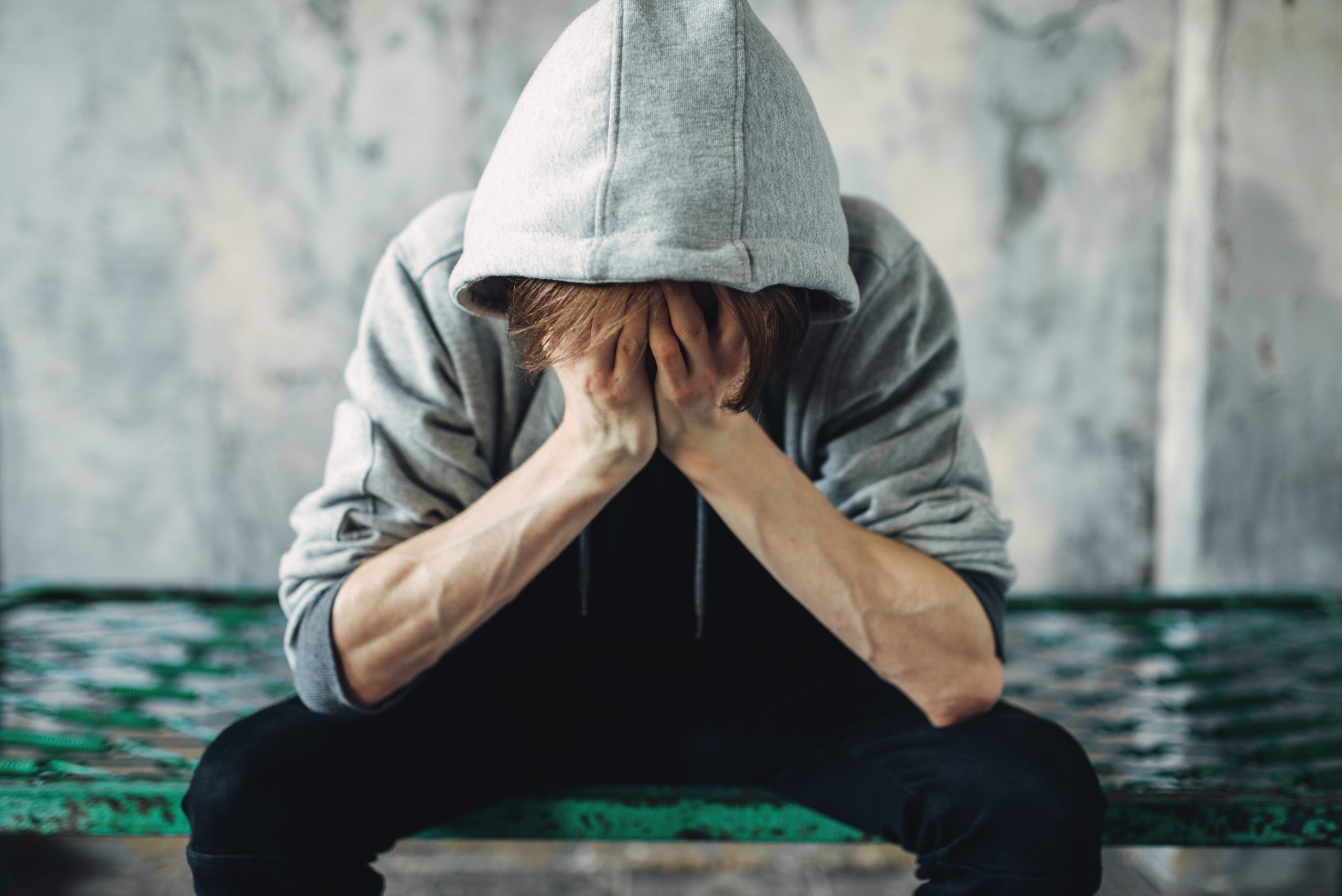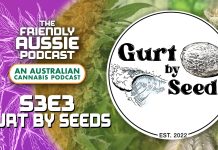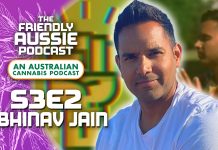Table of Contents
Humble Beginnings
I was first given the opportunity to use cannabis at age 15. The stuff I smoked that night was mostly just leaf. I had asked a friend for $10 worth of weed – I had no idea of the price at the time – he just laughed at me, and said I could have the leaf for $10. Knowing no better, I paid the money and went home to hide my drugs.
Later that night, I took bong rip after bong rip of the shitty plant matter – to no avail. A friend who was with me said he got “stoned af”, but I always figured he was lying to seem cool.
The next time I smoked, it was with some trim that a friend had gotten from a relative’s grow. This stuff did the trick! We were at my house, smoking “bucket billies” – which is the technical term in Aussie vernacular. Americans refer to them as “gravity bongs”, I believe. I can vividly remember the first time I experienced that rapid transition from sober, to stoned. It was like being smacked in the chest with love and joy and a feeling that nothing has to be taken too seriously. The thing I remember the most from that night was laughing until my face hurt. Once my friend returned home, I watched golf on TV for the first time ever. It was amusing; I actually found it surprisingly interesting!
It really was love at first (or “second”, in this case) sight. I would get high whenever I could; I was an anxious kid, and the plant did things for me. I was academically gifted, and felt the weight of living up to high expectations. Cannabis turned the volume down on those feelings. They let me see that there was more to the world than assessment and exams. It helped me abandon the standards for ‘success’ that society (and my school) thrust upon me. Finally, I could develop in my own way.
Honeymoon Phases
Everything was going pretty well… My parents were quite liberal on the issue, as long as I did my chores and schoolwork. They preferred it if I kept it to the weekends.
At first, these restrictions were reasonable and manageable. Over time, though, I found myself reaching for the baggie during the week much more often. It became a way of managing my mental health – self-medicating was now a weapon in my arsenal against illness. It’s key to remember that this was an awkward, teenage phase in my life, where I was still developing. I was an anxious kid, and I had it in my head that what I was doing now was gonna set me up for the rest of my entire life. Getting high silenced the critic, and allowed me to enjoy life.
However, my increasing consumption of cannabis started to cause some major friction with my parents. There were threats and ultimatums… but I continued. I felt bad. I had generally been a “good boy” up until this point; I tried to listen to and respect my parents as much as I could. I just felt they were hypocrites, though. As daily drinkers and cigarette smokers, they were drug users themselves. This was happening at a time when I was beginning to understand the broader context of prohibition and the stigma behind cannabis.
I made it through my penultimate year of high school, and I spent a good chunk of my summer holidays getting high, lazing by the pool and discovering classic stoner rock. Hendrix, Led Zep, Black Sabbath, The Doors. Cannabis seemed to help me connect to the feelings invoked by these songs – and I couldn’t get enough. All of the sudden, I was attracted to exploring philosophical and spiritual concepts, which symbolised a real change. I was always a “rational” kid; I considered myself some kind of scientist in waiting. Cannabis broke that compartment wide open.
Relationships of Toxicity
As the summer holidays started to wind up, some of my behaviours were becoming kind of strange. I was struggling to sleep for more than a few hours a night, my attention span was shortening, and my speech was much more rapid, sporadic and tangential. I was also experiencing a surge in sex drive – which was frustrating for me, as I was single, with absolutely zero game.
Things came to a head when I invited a bunch of homeless people over to my parents house one day, with offers of booze that I didn’t really have. My parents were pissed. For them, the writing was on the wall: Andy is a little cuckoo!

I got referred to a local mental health service, and saw my first psychiatrist. I was clearly manic (“a state of abnormally elevated arousal, affect, and energy level”, as per Wikipedia), and I was sent away with a diagnosis (Bipolar disorder, type 1), a bunch of meds, and orders to return for follow up treatment.
Managing My Condition
That first psychiatrist did surprise me, though. He said that mild use of alcohol and cannabis (the only drugs I had used to date) could help symptoms of mania. 17 year old me heard that as “stay the course son! drink all the booze and smoke all the weed!”. I tried to get back into the regular social scene. At the age of seventeen, all my friends wanted to do was party, smoke weed and drink booze! However, I quickly realised that seeing your friends struggle with mental illness can be tough for many people. A common reaction is for people to withdraw from you. My circle of friends began to shrink. I was struggling with feelings of loneliness.
I stayed on the meds, though, and did my best to push out socially again. Whilst some of my older mates had shied away, the ones who hadn’t ended up being my true friends. I got myself back into education again, and made the best of life within my condition. As many times as I was told that it wasn’t shameful to have a mental illness, and that controlling it with meds was like “a diabetic who needs to use insulin”, I felt different and weird. I didn’t feel that I belonged in the world in the same way as I did before my diagnosis.
I was diagnosed with Bipolar at age 17. I have had subsequent manic episodes at ages 19, 22, 30 and 38, if memory serves correctly. I am generally able to have a degree of insight into when I am becoming manic. At times, however, I haven’t been able to get the degree of help I need. I believe this is both due to poor mental health infrastructure in this country – I have been a guest of the system in both Western Australia and Victoria – and my own inability to recognise and communicate how unwell I am, or fear that I am becoming. The end result is that things can get messy, quickly.
Whilst the actions I have taken during manic episodes have been varied, the shame and embarrassment I feel about these moments is universal. I look back at the person who made those decisions, and I don’t understand him. All I know is that I get to pick up the pieces afterwards.
Once I put some semblance of a life back together (I usually have found myself needing some combination of new job/accommodation/friends), I get back to the daily grind. I try to look after myself, so that it doesn’t happen again. Problem is, this is a chronic condition. I’ll have it for life, no matter how well I treat myself.
Great sob story, what does this have to do with cannabis? Well, so far I have only touched on my earlier experiences. However, cannabis has been along for most of my story. Cannabis relieves the anxiety associated with an uptick in mania symptoms. Cannabis has helped with the rebound depression that can come after mania. It assists with generalised depression and anxiety, caused by living with other mental illnesses. Cannabis has assisted in deepening the few friendships I have, to the point that I can talk about my mental health with my mates.
Now, I Know What You’re Gonna Say…
“But Andy, you’re just a cannabis apologist! Cannabis is bad for people with mental illnessES!”
First off, that is a ludicrously broad statement. The diversity of mental health conditions people have, and the way that they present are wide-ranging; everyone is unique. To say that no one could ever receive any form of relief of any of their symptoms is quite frankly preposterous. I will allow that some people could experience negative effects – but in my own experience, those impacts are short-acting and have minimal (if any) long term impacts. I have never personally seen anyone have the stereotypical “freak out” and then fall into some kind of schizophrenia.
I want to take a moment to remind you that I am just a dummy with a keyboard. I like cannabis, and I just happen to have a mental illness. I’m not a doctor of any kind. I’m not a psychologist, or any type of medical professional. This is just my experience, folks. Your mileage may vary. If you are dead against what I have said here, maybe use that as a starting point for some more research, or a conversation with someone you know – particularly those with mental health concerns. If you want, you can just leave a comment on this article – I’ll try to respond and address some of your worries.
So Long, Old Friend
When I became a father, I decided (with a little help from my wife) to stop using cannabis. I thought that it wasn’t right to be a parent and be a drug user. I lasted almost two and a half years without a single puff. I spent most of that time without drinking as well. I was doing okay; life was ticking along well enough.
Then, something happened in my family: my sister-in-law lost her life to breast cancer. A young, vibrant woman, taken from her husband and two daughters, well before her time. Something shifted in me, after that. I could no longer see what it was that I was holding on to my sobriety for.
This wasn’t the first time I had decided to put down the pipe, so to speak. When I went to uni in my mid-twenties, I decided to go clean and serene, just to see how well I could do. I also managed to abstain from cannabis for a year or so in my early twenties – I still drank during this time, though. I had experience managing my illness sober… but also with my drinking (socially responsible drug use), by using weed and booze simultaneously, and by using some party drugs, like MDMA, Speed and Ice. By the time I decided to bring cannabis back into my life, I was well aware of how my consciousness reacted to different compounds.
I considered the possibility that using cannabis again at age 37 might put me at increased risk of a manic episode. To be honest, I quickly pushed it to one side; I figured my medication would take care of things, so I resolved to be extra vigilant about taking it. Cannabis is a real love of mine, and I was so glad to have it back in my life. In retrospect, though, I couldn’t ever be truly objective about my usage.
Coming Home Again
The year following my decision to pick up weed again was a very challenging one. First off, my wife had a breast cancer scare. This meant confronting both the prospect of a future without her, and the possibility of my daughters’ increased risk of the disease. That itself rocked us as a family. I was personally shook. I had been underemployed, only picking up temporary gigs here and there, which only added to the stress. I decided to return to teaching as a casual relief. The pay was great, the roster was flexible, and I had just enough experience to manoeuvre my way through whatever a school day might bring.
The trouble was that I found the role very stressful. I enjoyed teaching and working with children. At the best of times, I could buy into the idea of “getting to mould the future”. However, I had been working with children in extremely vulnerable situations. I struggled to deal with the intensity of feelings it brought up. When I left teaching several years prior, I thought that it was for good.
Stepping back into the classroom brought all of these old feelings back up. The emotional load led to a marked increase in both my alcohol and cannabis use. The alcohol use, in particular, seemed to impact my sleep. I would drink to get enough of a buzz to fall asleep, then wake up when I started to get sober a few hours later. The amount of booze required to get to sleep increased steadily over time. My cannabis use was ever-present in the background the whole time. The quantities I was consuming increased; however, I was smoking much less weed than I was drinking alcohol. I could hold out on hitting my vaporiser until after work, and usually until after lunch on days off. I could afford my use, and it didn’t seem to impact my interactions with my family as negatively as alcohol did.
Managing My Mental Health
The stress, in combination with my substance use – with little help from my pre-existing condition – led to me being hospitalised for mania in May of this year. I have not worked since then, and I am intending to re-train in a different field. I will not return to teaching. I’m at that point in my storyline where I feel a real need to press on the question of causality. Did I get sick because I was smoking lots of weed? I focus on that rather than alcohol due to the nature of this website – alcohol may have produced those effects, too. Perhaps I just gravitated towards cannabis as a means of managing my symptoms?
Again, I’m not professionally qualified to answer the question. I tend to lean toward the relationship being complex; causality may be bi-directional, it just depends on when you are looking. For instance, in the early stages of my symptoms, I think it did help to keep a lid on my growing anxiety. Once my anxiety had reached paranoia levels, it did very little. I required heavy pharmaceuticals.
This leads me to my main reason for continuing to use cannabis, despite having a mental illness. I believe that, on balance, cannabis helps me. I think that it helps me sleep (good sleep is an important factor in almost all mental illness, certainly in mine), I believe it helps me stay calm, and I reckon it does so with less unwanted side effects than the benzodiazepines that I get prescribed.
I think that cannabis can help me in a similar way to meditation. I feel it allows me to take a step back from my usual perspective, and see the world anew. I tend to use it too much at times, which leads to an overall lack of motivation. If untreated, I can end up in a mild depression, with chores piling up all around me.
I believe that a lot of us stoners are using cannabis to deal with some issues that could be better dealt with. Don’t worry, because almost everyone is, I reckon! Cannabis can be a drug that you can use to escape, or otherwise bury your head in the sand. Similar to alcohol and, well, pretty much any drug (the jury’s out on psychedelics I think).
This is no justification for its prohibition. I have smoked in psych wards with people who, despite having serious mental illnesses, desired the relief of cannabis. Despite the world of pharmaceuticals pumping out all different kinds of pills, they still prefer the herb. I am working with my psychiatrist at the moment to lodge an application for medicinal cannabis.
A few things need to change in the legislation and in the way it’s interpreted by the government for me to become eligible. Even then, it looks like I’ll be receiving a higher CBD ratio product. I have had a little experience with high CBD products; in a friend’s last outdoor grow, he cracked a seed known as “Peach Puree”, a girl with a 2:1 CBD to THC ratio. That’s it, basically.
So the picture is a little more complex than weed + mental illness = bad. The experts are beginning to catch on to this. I am in the public system, so I get bounced around from psychiatrist to psychiatrist. The current batch that I see are much more likely to ask “how does cannabis affect you?” rather than in the past, when I was told what cannabis did. The talk was always “harm-minimisation”, but the actions are starting to line up like that, too. I am actually starting to feel like I have a proactive part to play in managing my own mental health. Turns out I’m not just a naughty boy who likes playing with fire and needs to keep having his wounds dressed every couple of years.











